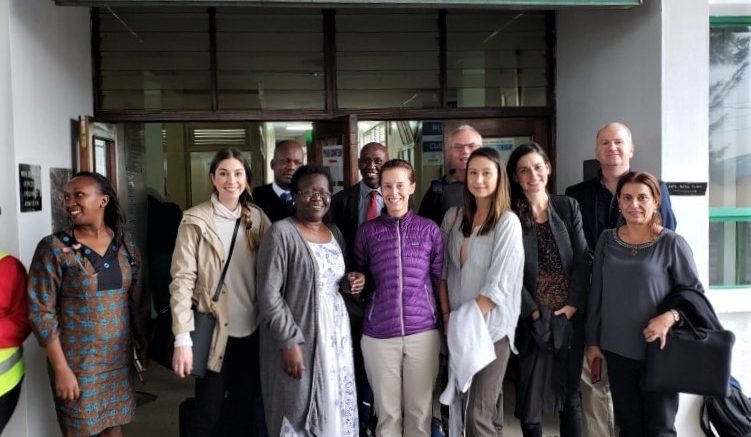Evaluation is supported by a Grant from the Bill & Melinda Gates Foundation and targeted to achieve reduction in Neonatal Mortality
EarlySense, the market leader in contact-free continuous monitoring solutions across the care continuum, announced today that it has been selected for a pilot project with Save the Children, an international nonprofit that works in 120 countries. This work is supported by a grant from the Bill & Melinda Gates Foundation. Continuous monitoring sensors will be tested first at Aga Khan University – Nairobi teaching hospital and then Pumwani Maternity Hospital, to monitor key health vitals of neonates in Nairobi, Kenya.
According to USAID, Sub-Saharan Africa has the world’s highest newborn death rate (34 per 1,000 births), with its infant deaths accounting for one-third of under-five deaths globally. With EarlySense sensors, nurses and physicians will be able to continuously track key vital signs, including heart rate and respiratory rate, as well as motion. This real-time monitoring is designed to provide a broad picture of neonates’ health and alert staff ahead of potential adverse events, enabling them to act quickly to improve care and prevent deaths. The contact-free sensor is placed under the bed mattress and requires no wires or hookups to the neonate.
“EarlySense’s contact-free continuous monitoring technology is a novel approach in newborn care,” said Rasa Izadnegahdar, deputy director on the Maternal Newborn Child Health Discovery & Tools team at the Bill & Melinda Gates Foundation. “We look forward to the evaluation by Save the Children and using the results to inform best practices in the clinical care of vulnerable newborns born in low and middle-income countries.”
This will be EarlySense’s first application of its contact-free continuous monitoring technology to monitor neonates. Currently, EarlySense sensors are used worldwide in hospitals, rehab and skilled nursing facilities. The sensors leverage advanced algorithms to notify nurses of potentially adverse changes in patient vital signs, sending alerts to physicians’ pagers and to the central display station. The FDA-cleared and CE-approved solution has been clinically proven to help healthcare providers to prevent adverse events, including code blues resulting from cardiac or respiratory arrest, preventable ICU transfers, patient falls, pressure ulcers, and hospital readmissions for adult population.
“Part of Save the Children’s core mission is to give every child a healthy start at life,” said Dr. Amy Ginsburg, head of Save the Children’s Technology Accelerator Unit. “We are excited to assess EarlySense’s technology among newborns in African hospitals.”
“We are honored to have been chosen for this important project, and to work together with Save the Children in a project supported by a grant from the Bill & Melinda Gates Foundation,” said Avner Halperin, Co-Founder and CEO of EarlySense. “The infant mortality rate is a key measure of a society’s overall health, and I am confident that our continuous monitoring solutions will help local health teams save lives and improve outcomes. This is another prime example of how EarlySense’s continuous monitoring technology is positively impacting patients, families and health teams across the healthcare continuum and around the world.

